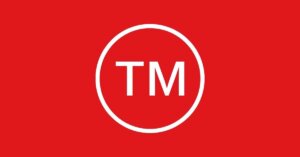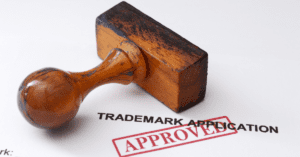Earlier this year, the China National Intellectual Property Administration (CNIPA) released a draft proposing amendments to the PRC Trademark Law. The purpose of this publication was to allow the public to read and comment on the draft before its finalization. If implemented, these amendments would mark the fifth revision to the PRC Trademark Law, following previous amendments in 1993, 2001, 2013, and the most recent one in 2019.
While the amendments are not yet official, we have summarized several significant updates based on the current draft:
- Tackling “bad faith” applications
The proposed amendment takes a stricter stance towards “bad faith” applications. Article 22 gives detailed definitions on what would constitute as bad faith, something that isn’t available in the current PRC Trademark Law. Bad faith applications, as stipulated in said Article include
- Applying for a large number of trademark registrations without the intent of use
- Applying with deceptive or other improper means;
- Applying for trademarks that are harmful to national interests or social interests
- Violating the provisions of Articles 18 [prohibiting the copy, imitation or translation of a well-known trademark], 19 [restricting agents or representatives from registering trademarks of the principal or represented person in their own name without authorization], and 23 [restricting pre–emptive registration of a trademark that already has a certain level of influence] of this Law, deliberately damaging the legal rights or interests of others or seeking illegitimate interests; or
- Applications in other malicious ways.
The amendments also details administrative punishment. As stipulated in Article 67, applicants of bad faith filings will be issued a warning or fined of less than RMB 50,000. For more serious offences, the fine can be up to a maximum amount of RMB 250,000. Furthermore, parties which suffer losses from the bad faith filings may file civil actions and are entitled to compensations, as stipulated in Article 83.
- Adjustments of registration opposition
Article 36 shortens the opposition period from 3 months to 2 months from publication. Moreover, the current Trademark Law does not give the opponent the right to file review if their opposition is dismissed, but the opposed party is entitled to file a review if the opposition is upheld. Article 39 of the drafts removes this review.
- Trademark usage obligations
As Stipulated in Article 5, In order to register a trademark, the applicant is obliged to actually use, or commit to use, the trademark on the relevant goods/services. The draft also ensures that usage after registration. It is stipulated in Article 61 that within 12 months after each 5 years since a trademark is registered, registrants must file a statement to the CNIPA proving usage of the mark or legitimate reasons for non-use.
- Trademark hoarding
The draft looks to erase the excessive hoarding of trademarks.Article 14 stipulates that an applicant can only register one identical mark for the same goods or service. While Article 21, further stipulates that a registration cannot be the same as a previous application filed or owned by the same party.However, the draft does stipulate repeated filings are not prohibited, they are:
- Due to production and operation needs, minor improvements are made based on the actual use of the previous trademark
- Failure to renew the trademark due to reasons not attributable to the applicant
- Registered trademark was canceled due to failure to submit statement usage in time, but the prior trademark has been in use;
- The prior mark is cancelled due to the reason not attributable to the applicant, while no statement of use was submitted but the trademark has been in use
- The prior trademark was declared invalid for conflicting with the prior rights or interests of other parties, but the relevant prior rights or interests no longer exist
- Other valid reasons for repeating not specified.
- Updates on trademark revocation
Article 49 of added three more scenarios in which a registered trademark can be revoked. They are:
- Trademarks that misleads the public on the quality and other characteristics of the product or its place of origin
- The registrants of collective trademarks and certification trademarks violate the provisions of Article 63 (which stipulates illegal behavior on collective trademarks registrations) and the circumstances are particularly serious; and
- The use of a registered trademark is against the public interest
- Limitations of the right to prohibit use
The draft introduces limitations in which a trademark owner cannot prohibit the usage of their trademark. According to Article 62, these scenarios are:
- the use of one’s own name, title or address in good faith
- the use is to describe the type, nature, quality, function, usage, weight, quantity, value, geographical origin and other characteristics of the goods, or when the name of a place, generic name of the goods, graphic, model, technical term or other descriptive sign is used and contained in a registered mark
- The use only is only to indicate the function, applicable object or context of the product, except if such use misleads the public.
Furthermore, Article 9 of the draft stipulates that legitimate rights of others cannot be violated by trademark rights.
Conclusion
Keep in mind that as of this moment, the draft has not been finalized and could be subject to changes. Furthermore, our summary didn’t cover the entirety of the draft, which you can access here. We urge anyone with a vested interest in the Chinese IP ecosystem to study the proposed amendments and follow this development closely. In the meantime, if you have any questions related to IP, contact us at ambadar@ambadar.co.id. We will provide the best service according to your needs.
Sources:






